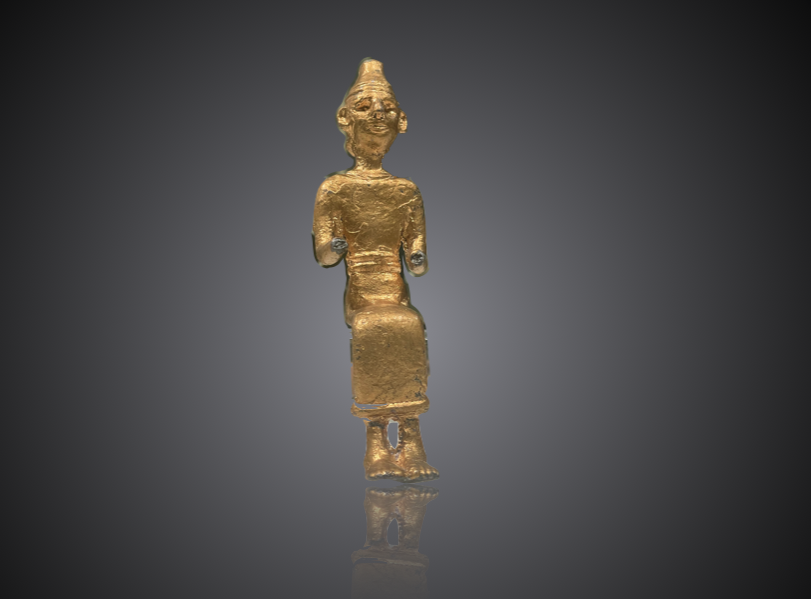At first it sounds like an oxymoron. How can people who have dismissed the supernatural be idolaters?
Although stone and wooden idols are one manifestation of idolatry, to be idolatrous does not require bowing down, sacrificing or praying to gods represented by inanimate objects. Idolatry is much more expansive and pervasive.
Paul identified greed and covetousness as being idolatry (Colossians 3:5; Ephesians 5:5). By so doing he identified one of its core impetuses. Let’s work toward understanding how greed constitutes idolatry.
• Greed is far more than just wanting money.
Jesus spoke of many forms of greed (Luke 12:15). Jesus’ words identified its source, namely equating things as undergirding, sustaining or comprising life. Since many different things can be assumed to contribute to establishing one’s life, greed involves wanting more of what is presumed to take care of me or make me significant. Accordingly, because people believe that many different things can take care of them, greed has many expressions.
• At its heart, the idolatrous impulse exercises a belief system for organizing one’s life.
Idolatry comes in two forms: a one-belief secular version and a two-belief version embracing a spiritual reality. Consider the two beliefs that drove Israel’s idolatrous behavior. As an agricultural society she longed for the land’s fertility. Fundamental to this desire was the belief the land could provide what was needed. At times Israel also believed Baal, the storm god, could provide the needed rain for the land to be fertile. Thus her belief that the harvest could take care of her along with the belief that Baal could bring rain created the powerful temptation to worship Baal.
Baal worship was simply one form of idolatry in ancient Israel. Whatever the idolatrous practice, it was the individuals’ belief system that drove the misguided devotion.
With a secular mindset, the same dynamic occurs flattened into one belief. When people believe that money, family, fame, acceptance, power, position, or a bountiful harvest, etc. can both take care of them and provide significance, they are tempted to serve, invest and organize their lives around these things.
• Idolatry relies upon faulty beliefs
One type of lie is common to both the secular mindset and idolatrous ancient Israel. What’s the lie? Creation or some earthly thing can take care of my needs. Deuteronomy 8:3 counters such falsehood, "Man does not live by bread alone." We need more than just food, money, etc. in order to live. Idolatry thrives upon the belief that something within creation is sufficient for life.
To assert our dependence upon what God reveals and provides does not deny that we need food, clothing, shelter, money and even bountiful harvests. God knows that we need such things. But these things are not sufficient in and of themselves to sustain us and provide what we need.
Ancient Israel also succumbed to a second type of lie. At times she believed that the Canaanite pantheon of gods were able to deliver upon various promises. Jeremiah called their promises broken and empty cisterns (Jeremiah 2:11,13), while Isaiah bluntly declared that God knows no other God (Isaiah 44:6;45:5). The lie is that there are other gods who can provide.
• The bottomline
Nothing is wrong in enjoying a bountiful crop, having money, a loving family, being accepted or possessing influence. Yet, when someone believes that either created things or gods can provide significance and security, an idolatrous temptation arises.
The secular person, who dismisses God or relegates the divine to the irrelevant, will be very idolatrous as he or she seeks to build life upon created things. When this world is regarded as being capable of providing what is needed, greed ensues. I need more money, then I will be OK. I need more people to like me. I need more power and so it goes. Greed is idolatry because assuming that having more of what is created is the answer will drive one’s ultimate devotion to something within this world.
The answer for living is God, who is worthy of our devotion. God is faithful. God is love. He cannot lie. What he promises, he provides.
The Bible assumes we will be devoted to something. We cannot serve two masters. The question is will our master be God or mammon?
- Tolerance, Acceptance and Inclusion - 2026-01-14
- Believe: Sometimes A Synecdoche - 2026-01-07
- Christian Virtues Impact - 2025-12-17
